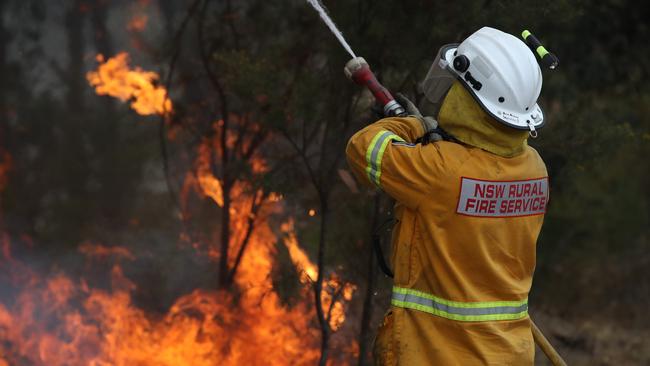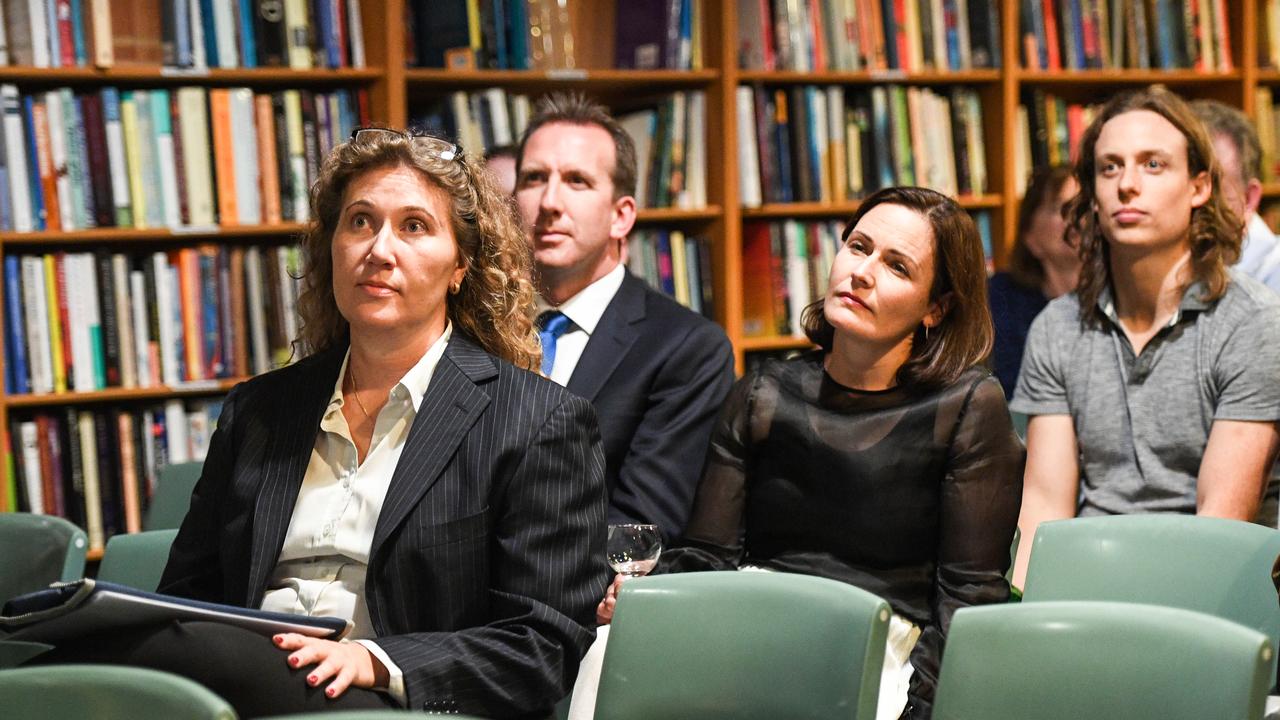Volunteer fireys aren’t doing it for the money

As a volunteer firefighter, I don’t want to be paid for the work I do and don’t know many fireys who do, although when asked why we find it hard to explain.
My first response is to imagine the crews with whom I’ve worked rolling up to a government service centre, registering with the authority, producing a note from their captain detailing days worked (no doubt verified by headquarters) and then listing how many toilets they would have unblocked during those days, how many words they would have written or how many court cases they might have won, and then toting up how much income that would have generated. The department would probably want a data match on all that, too.
This compensation system that was hurriedly stitched together in the midst of a natural and political emergency by departments that are expert in deterring rent-seekers is more likely to offend than compensate. To me, it looks mean and undignified. And while we need to find ways to help those who have suffered financial losses for their generosity of spirit, we should pause to think about the nature of volunteerism.
Being a volunteer owes nothing to the marketplace. Volunteers get their kick out of giving themselves to communities. Making a gift of labour to someone who really needs it is a very powerful motivator. It connects them with people, it deepens their connections with communities and gives them a chance to experience purpose in their lives. And, OK, some enjoy the thrill but that’s not me. The happiest my brother (a Rural Fire Service captain) has looked in recent times was when he told me that he’d saved four houses from burning down that day.
It’s powerful in other ways, too. As a volunteer you get to decide whether you can or will turn up today. Every time you go out, it’s your decision. It also gives you the power to say, no, you’re not going to light up a backburn without proper resources (something I had to do this season) or even to leave the fire ground because you’re not confident about the operation.
Few do this, if only because working as a volunteer in a crisis is like being a soldier in a war zone. You’re thrown into a fire ground with 50 or 60 others — many strangers — and asked to work together under trying conditions. You watch each other’s backs, you share whatever work has to be done, you don’t whinge if there are no gluten-free sandwiches and you try not to scream with fright. You make instant and urgent connections with your crews over 14-hour shifts — some of them spent sitting around eating sausage sandwiches and some staring down towers of flames.
The broader message of these displays of volunteerism is a reminder that money doesn’t have to underwrite everything we do. So much of our lives are spent in the work-spend cycle and so much of our national debate is about the income-expenditure equation that we’ve forgotten there are other ways of operating and that the incentives and rewards of these other spheres are hugely powerful.
Well-known behavioural economist Dan Ariely wrote in Predictably Irrational that we should never mix social spheres with economic spheres. That is, when grandma brings a cake to your lunch you don’t offer to pay her for it. Similarly, when a multinational asks you to work a couple of shifts for nothing we should tell them where to go. The social space is a particularly vulnerable area of human relations and should never be polluted by marketplace principles. Sometimes the roadside signs — Fireys are legends, etc — are all we need.
We used to work like this in old Australia; in fact, the volunteer fire services were first set up by local farmers banding together with a bit of equipment in a shed to help protect each other’s properties. The first was set up in 1896 in the tiny NSW town of Berrigan. That spirit of do-it-ourselves is still imbued in the service and while headquarters is the engine room of operations, the “white shirts” there are respectful of the grassroots nature of many brigades.
Australians got a whiff of this spirit during this season’s calamities. They saw something of old Australia, they saw the bonds that still bind regional communities and, perhaps because they were appreciative, they wondered why they did it without pay. Funnily enough, no one I worked with on the appliances (trucks) mentioned payments.
But the nature of this season and no doubt those to come means we have to address the financial stress that extended fire seasons place on a limited number of volunteers (while the NSW RFS has 72,000 volunteers, it’s estimated only about 18,000 are active and fewer than 5000 are available for out-of-area strike forces).
Few are fans of the compensation system that was agreed upon (in NSW) last month. For instance, many fireys are tradies. It would be impossible for those working in the gig economy to make a case for how many gigs they might have won or for farmers to estimate how much they would have earned on the farm for each shift at the fire front.
Already the fire grounds are unequal with employees of governments and many big companies still being paid during their community service, while the self-employed, semi-retired and small business operators are out of luck. We don’t want to make it more unequal.
A suggestion that aims to preserve the social contract with volunteers while allowing for compensation was put forward by Nationals MP Darren Chester before Christmas. He suggested using Victoria’s fire services property levy to fund daily allowances for out-of-area operations during emergencies, or “campaign fires”, as he put it.
Whatever way it’s funded, this idea protects the spirit of most work done by firefighters. When working in their own communities, they work as volunteers like their predecessors did 100 years ago. However, when called out to protect greater Australia their work should be considered above and beyond the call of community duty and compensated as such.
This, after all, is how army reservists are compensated in times of emergency and it’s similar to the principles that underlie the jury system — you are paid a per diem in recognition of your duty but this amount isn’t designed as income replacement.
Sceptics will suggest that payments will encourage the wrong sort of people to turn up for campaign fires. While this is always a risk, local brigades are generally small, tight units and quite adept at deferring unsuitable members.
There are more novel ways of relieving financial pressure on fireys — the tax office can be a tool of recompense or relief; corporations and even land owners have shown a willingness to pitch in to support those who work on their behalf. No doubt more options will be canvassed.
Whatever the solution, it should respect the power and the fragility of the social contract because even if those thousands of firefighters are some of our bravest and most resilient citizens, the contract they have with you and me is a delicate one.
Deirdre Macken is a columnist for Review and fights fires on Sydney’s Northern Beaches.


